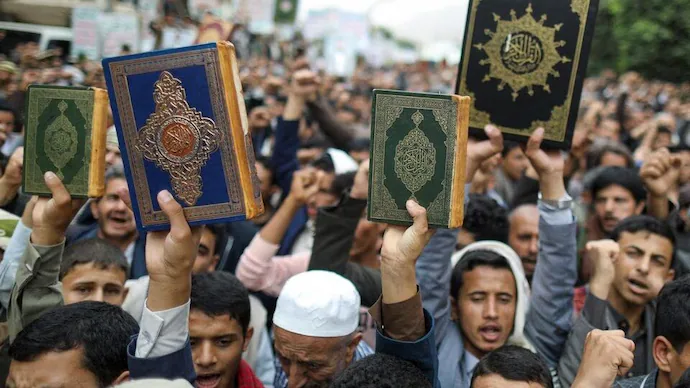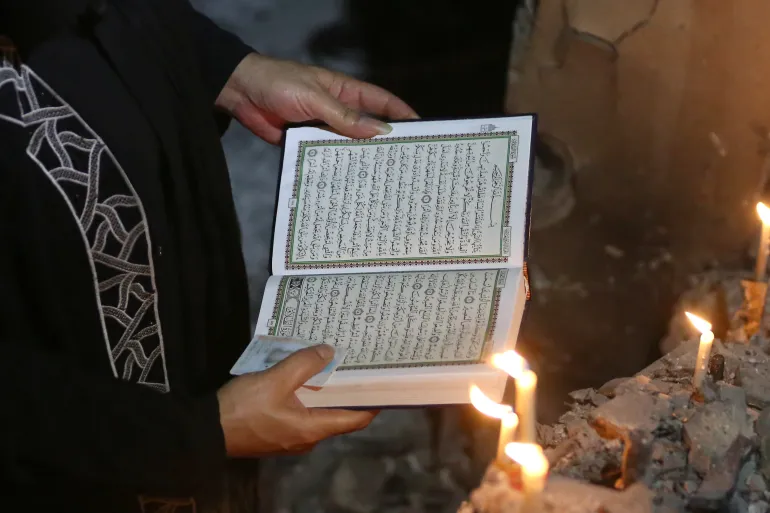After Sweden, the government of Denmark is also tightening its border controls to increase security and prevent unwanted people from slipping into the country through its borders after the recent Quran burnings. Stringent border controls will initially be placed until August 10.

Increased Security on the Borders of Denmark
The Danish Ministry of Justice said in a statement on Thursday that it is crucial for them to focus on who is entering Denmark in order to respond to current threats. The authorities fear revenge attacks from the outraged Muslim world after the recent anti-Islam activities in Denmark and Sweden.
Several copies of the holy book Quran were burned and damaged by far-right activists in the past week. More such demonstrations have been planned on Friday and three more events in the coming weekend by a small anti-Islam community.
Justice Minister Peter Hummelgaard stated that “The recent Koran burnings have, as the security police have said, affected the current security situation”. Denmark’s decision to tighten border controls with more traveller checks follows a similar move by Sweden.
The Prime Minister of Denmark, Mette Frederiksen, told public broadcaster DR on Thursday that religious texts should not be burned. He added by saying it would be wrong if someone burned the bible. Burning of Torah which belongs to the Jewish faith would also be incorrect.
Violation of Human Rights or Freedom of Speech?
The government of Denmark and Sweden have condemned such activities and it is considering imposing new laws to stop these groups. However, local critics say that any such move on behalf of the government would mean undermining their right to speech and expression which is protected by their constitution.
Sweden does not have legislation that prohibits the burning or destroying of a holy book. While referring to the Swedish legislation, its Prime Minister Ulf Kristersson said on Tuesday “Everything that is legal is not appropriate. It can be lawful but still awful”.
According to a report, stringent border controls were meant to avoid entry of people having weak ties with Sweden to commit crimes or disrupt the country’s security interests. In Baghdad last month, the Swedish Ambassador was expelled from the country and the Sweden Embassy in Iraq was set on fire by angry Muslims. Such incidents compelled Stockholm to impose restrictions on its border.

Uproar in the Muslim World
Burning and damaging of the holy Quran by Scandinavian nations in front of Turkish, Iraqi, and Egyptian embassies has infuriated the Muslim countries. As a result, many Islamic countries such as Saudi Arabia, The United Arab Emirates, Iran, Qatar, Morocco, Malaysia and Yemen have logged protests. International rallies have been organised against Sweden and Denmark in the Middle East.
Following the burnings, a resolution on religious hatred and bigotry was approved last month by the United Nations Human Rights Council (UNHC).
Similar to the Bhagavad Gita in Hinduism and the Bible in Christianity, the Quran is the holy book of Islam and is their most sacred text. It is treated with the utmost respect and regard. The Quran is considered the literal word of God.
Followers of Islam believe that the Quran has been preserved in its original form since its revelation about 1400 years ago. Therefore, Muslims believe damaging the Quran is equivalent to desecrating an ancient sacred scripture. They call such an act unacceptable and against their religious sentiments.
Some Muslims say that far-right Europeans are targeting Islamic holy symbols and sentiments. They view such practices as evidence of growing intolerance and hatred towards Muslims.













